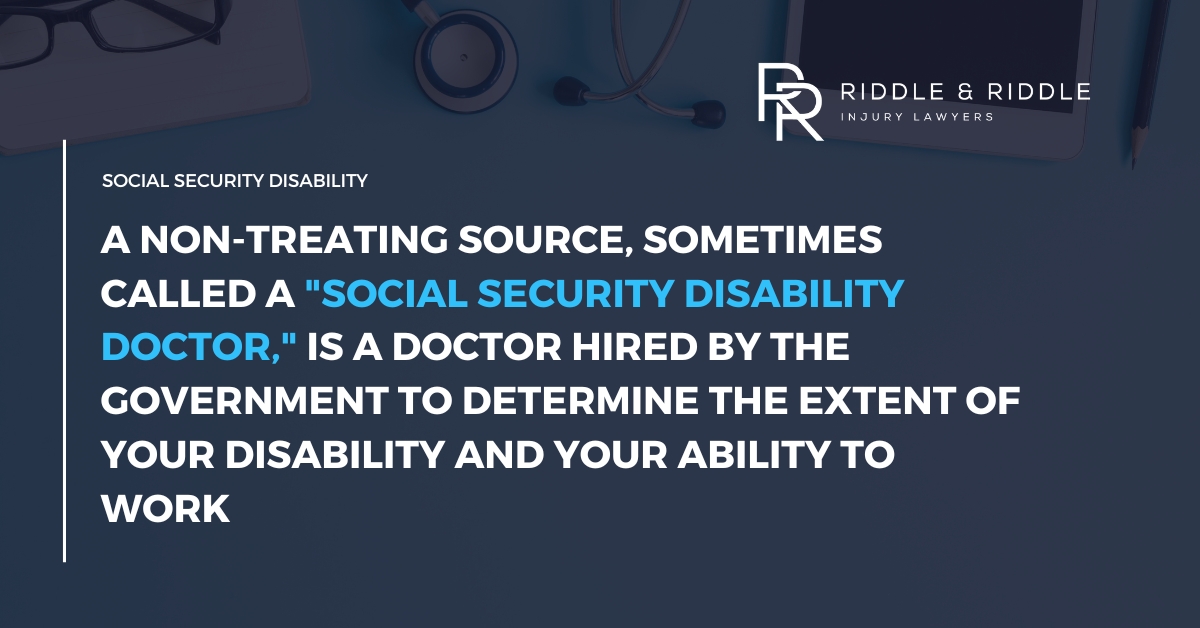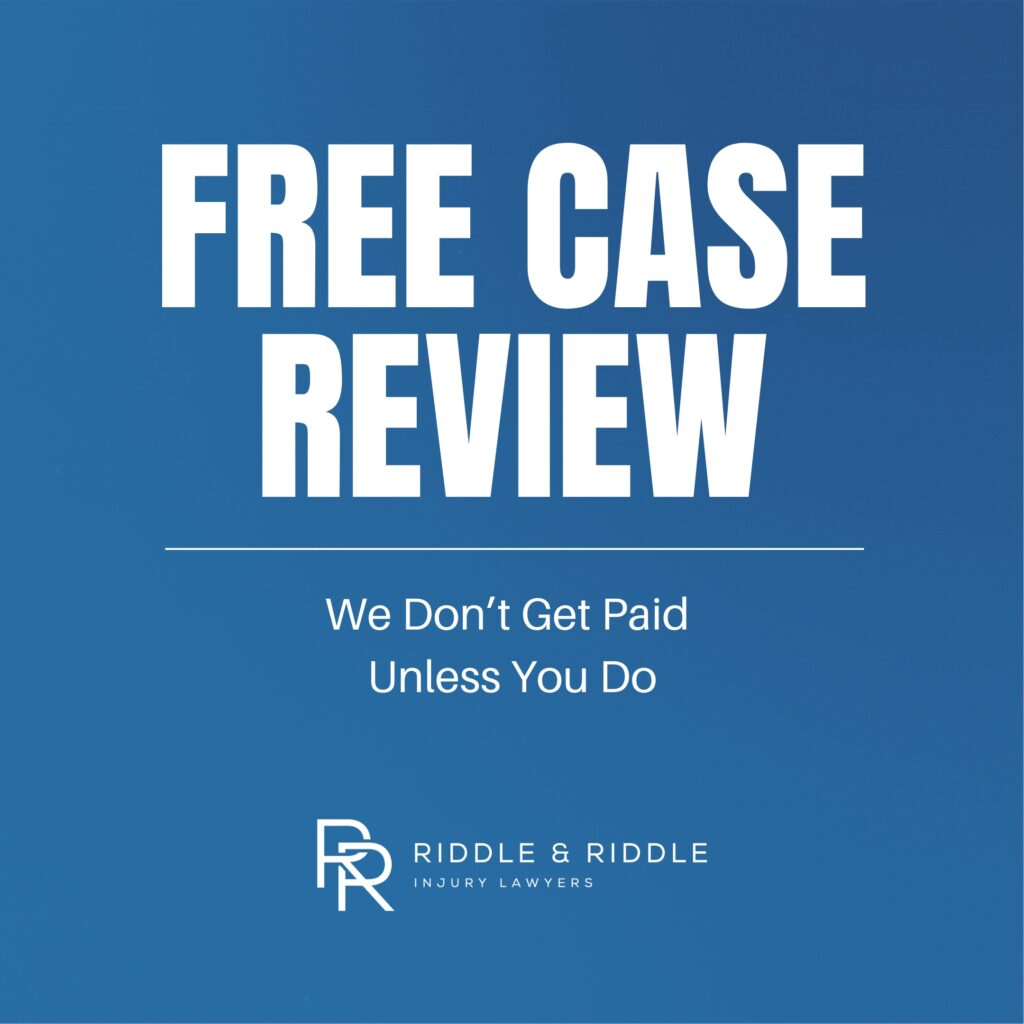Riddle & Riddle Injury Lawyers | July 1, 2019 | Social Security Disability

If you’re applying for Social Security Disability Insurance (SSDI), there are two basic types of medical evidence SSA uses to help decide whether a person is “disabled.”
The two types of medical evidence considered in Social Security Disability Insurance cases are:
- Treating Source Evidence
- Non-Treating Source Evidence
Treating Source Evidence
When you apply for disability benefits, a state-government agency called Disability Determination Services (DDS) gathers and reviews your medical records. That is why you have to tell them who your doctors (otherwise known as “Treating Sources”) are when you apply.
Treating Source records usually include treatment notes, test results, etc. from doctors you’ve been seeing for some period of time.
If these records contain enough information to clearly show that you qualify as “disabled,” you can generally expect to win your case and be awarded disability benefits.
However…
If the records from your treating doctor(s) are not sufficient for DDS to decide that you are disabled, DDS may send you to a doctor they hire and pay to examine you (physically, psychologically, or both).
These are called “non-treating sources” and the evidence they collect is called Non-Treating Source Evidence.
Non-Treating Source Evidence

Doctors hired by DDS to assess the extent of your disability are called “non-treating sources” because they are hired to look at your records, examine you, and report back to the judge with their opinions on your condition as it relates to your ability to work. They are not hired to help you get better.
These non-treating sources are sometimes referred to as Social Security disability doctors, though that is not an official title and they are really just private providers who contract with the government.
The unfortunate reality is this:
Also known as “consultative” doctors, these so-called Social Security disability doctors very often paint incomplete, inaccurate pictures of a person’s physical or mental health condition.
What if Treating and Non-Treating Sources Have Different Opinions of My Potential Disability?

The regulations that judges are supposed to follow say that treating sources (the doctors who know you best) are to be given more weight and importance than non-treating sources, but that is not always the case.
Judges are directed to weigh ALL the evidence to determine which doctors to believe.
Sometimes they do this correctly, sometimes not so much.
If you’re seeking SSDI benefits, it’s in your best interest to consult with an experienced North Carolina Social Security disability lawyer who knows how to navigate the system.
“We tell all our clients that getting a letter or form from their own doctor is about the most important thing they can do to support their case. The doctors hired by DDS may claim to be impartial and independent, but I can’t help think that they know who pays their fees and that their opinions are affected by that knowledge.”
Do you need Social Security Disability benefits?
If you are disabled and seeking Social Security disability benefits, the application process can be complicated. Applications are frequently denied, and an appeal may be necessary.
Our disability lawyers are ready to help.
“I sincerely appreciate your dedication to my disability case … I’ve told friends of mine that your firm is the best in Eastern North Carolina. My deepest gratitude.”
-Gloria T.
For a FREE consultation, please call (919) 876-3020 or complete the form below. There is no obligation, and if you decide to hire us there is no upfront cost and you won’t pay a dime unless we win your case and you receive benefits.
You deserve justice, and we would love to help if we can. Please contact us today.
Contact a Personal Injury Lawyer from Riddle & Riddle Injury Lawyers for Help Today
For more information, please contact Riddle & Riddle Injury Lawyers to schedule a free consultation with a personal injury lawyer in North Carolina today. We have twelve convenient locations in North Carolina, including Greenville, Raleigh, Goldsboro, Jacksonville, Kinston, Charlotte, Greensboro, Durham, Fayetteville, Wilmington, Winston-Salem & Garner.
